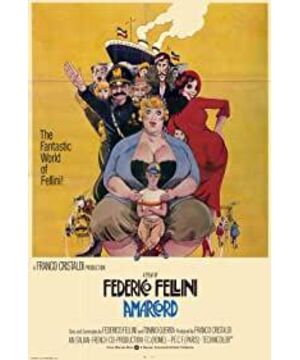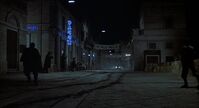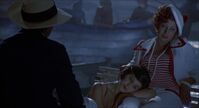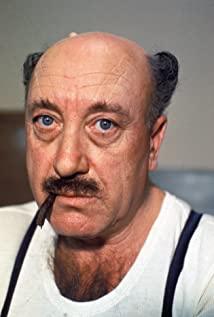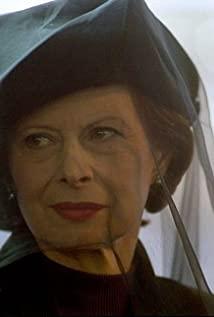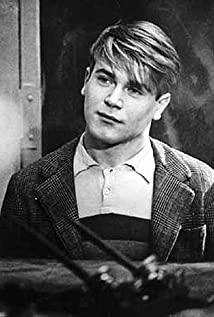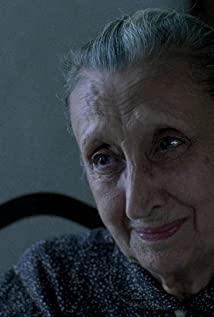From neorealism to film, Fellini uses his imaginative brushstrokes to outline a wonderful, funny and wild world for us, where irony and praise coexist, reality and fantasy coexist, he always makes us Lost in the world he created. If "The Solitude Trilogy" is the end of Fei's new realism era, and "Eight and a Half" is his first chapter from reality to fantasy, then "Amakord" is a mixture of youth, The warm and melancholy carnival reminiscent of the hometown is also the culmination of Fei's film career. Although there are several works after this, none of them can reach the height of "Amakode". Continuing Fei's "tradition", the narrative of "Amakod" is still unconventional, composed of fragmented fragments to form a panoramic image. There is no unified story line, and naturally there is no prominent central character. The me (Tita) here is not so much the protagonist, but rather a part of the small town group portrait. The town and its people are the real protagonists of the film. Some sources mention that the film was shot in Fellini's hometown of Rimini, and some say that it was modeled on a set built in Rimini, but in any case (according to Fellini's habit of filming, the latter statement is more reliable), Ferry He unreservedly showed his hometown Rimini, the place where all inspirations originated, and his memories, nostalgia, and all kinds of people and things in the town before our eyes. The film spans the entire year, starting in the spring and ending in the spring. At the beginning, Tita was still a cheerful and mischievous teenager with ignorant expectations for sex. He longed for the goddess of the small town, Gladysca, and played pranks in class with his classmates, observing women's butts. Like ordinary teenagers, he often annoys his father, but loves his mother deeply. He has a somewhat crazy family, a lascivious and stubborn grandfather, a cranky father, a playboy uncle, an equally naughty younger brother, an uncle who is in a lunatic asylum, and the most normal-looking mother who claims to be poisoning the pot Then commit suicide. The family was noisy but happy. In the middle of the film, Tita broke into the cigarette shop of the masturbation object - a fat and huge woman - at night, was pressed on the breast by the other party and had a good time. After returning home, she fell seriously ill and said a lot about Love bullshit. His mother was really sick. At the end of the film, his mother died of illness, and the once lively family lost their backbone and seemed at a loss. The film seemed to have reached the lowest point of emotion. The film is based on the small town group portraits of Fellini's youth as the skeleton, but incorporates many fantasy passages. The first half is dominated by reality, and more and more fantasy is inserted in the second half. For example, my grandfather was lost in the fog, and my younger brother met a white cow on the way to school. Tita and her partner danced silently. If it is said that these past events are half true because of the beautification and reconstruction of the memory of the protagonist, then the following two are obviously not true. One is Gladysca seducing the prince, and the other is Bishin visiting the boudoir of Muslim wives and concubines at night. Obviously, they are all my imaginations. Fellini's films often blur the lines between narrative and non-situational music. The wind band is an indispensable element in Fellini's films, and Emile Kusturica has learned a lot from it. The ubiquitous bands in "Underground" simply exist to match the background music to the film. They don't do anything else, they don't interact with the other characters, there's no other dramatic action, just endless playing. Obviously, any revelry requires a performance, and both directors like to let the orchestra go directly into the story. At the beginning of "Amakode", the background music played in the barber shop, and the barber played the flute to show off. Only then did we find that the two kinds of music have become one. There is also musical accompaniment in the Burning Witch, but we don't know it's the blind organist until we give a shot. The wedding at the end took the same approach. The fantasy part of the dance, they were dancing in silence, but because of the participation of background music, we have the illusion that they are dancing with the music, (some people are playing instruments in simulation). "Joker," "Amakord," and "The Ship Goes On" all feature storytellers. The storyteller in this film tells the history of the town directly facing the camera, breaking the self-sufficiency and closure of the film world. He appeared a total of six times, sometimes only as a passerby, saying a few words of his own to the camera, and sometimes he solemnly acted as a "guide" for the audience, leading us into the story. Gladysca and Bissing's fantasy plot comes from his narration. But at the same time, the storyteller is not an "omniscient" character who is separated from the story, but has a connection with the people in the play, such as passers-by greeting him, throwing snowballs at him, and he seems to be a member of the small town. This kind of coherent narrative that doubles to break the traditional film adds a lot of charming color to the film. The end of the film is a typical Fitzroy orgy. Emotions that have been at their trough have begun to pick up. Gladysca's wedding seemed to be filled with happiness, warmth and laughter, but there was a hidden unease - she married a fascist officer. The scenes of welcoming the fascist soldiers, shooting down the horn playing the Internationale, and the father being drenched in castor oil by the fascist officers also present this unease. The feast at the end can be seen as a variation of the ending of "Eight and a Half" and continues at the end of "Underground," a surreal epic that has Fei's shadow everywhere.
Public number: movie box (laodianyinghualang)
View more about Amarcord reviews


